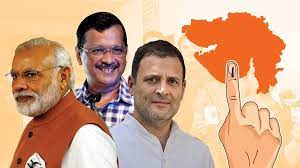The Bharatiya Janata Party should craft a more empathetic governance paradigm
Bhupendra Patel, who on Monday took oath as Gujarat Chief Minister for a second term, is the third person to succeed Narendra Modi in the State. Mr. Patel enjoys the complete confidence of Mr. Modi, whose popularity won the day for the Bharatiya Janata Party (BJP) in the recent Assembly elections. Mr. Patel’s role in the campaign was limited, but now into his second term, the pressure is on him to emerge as a leader of his own standing. The new Council of Ministers has 16 members, representing various communities and regions of the State. Three are Patidars, five are from the Other Backward Classes, two are Kolis, one each from Brahmin, Jain and Rajput communities, two from the tribal communities, and one from the Scheduled Castes. Six of the Ministers are from Saurashtra, four from the south, and three each from the central and northern regions of the State. At least four defectors from the Congress have found a place. The BJP’s massive victory masked, but did not possibly erase, public resentment regarding corruption and inflation, which several pre-poll surveys recorded. Gujarat continues to attract investment, with the proactive help of the Centre, where two leaders from the State hold sway, i.e., Mr. Modi and Home Minister Amit Shah. But that alone will not suffice and the new government already has its plate full.
Tackling unemployment rates must be high priority, particularly in the rural areas and the tribal belt of the State. Ensuring transparency in governance is an immediate challenge for the new government. The weakening of state capacity due to contract employment has aggravated governance challenges in recent years. In the social sector, education, health and nutrition, spending and outcomes are not commensurate with the State’s status of prosperity. This may have contributed to the penetration of the Aam Aadmi Party in the tribal belt where people experience a distance from Gujarat’s famed growth model. Economic development has remained robust under BJP rule, but the benefits have been largely cornered by the upper segments of society, mostly upper castes and a few powerful sections of the OBCs. In terms of per-capita Net State Domestic Product, Gujarat is among the better States, and is ranked sixth (2020-21). But the State being ranked 26 among 30 States in stunting (2019-20), and on several other parameters, tells a story of persistent underdevelopment. Mr. Patel should use the renewed political mandate to craft a more empathetic governance model for Gujarat.
